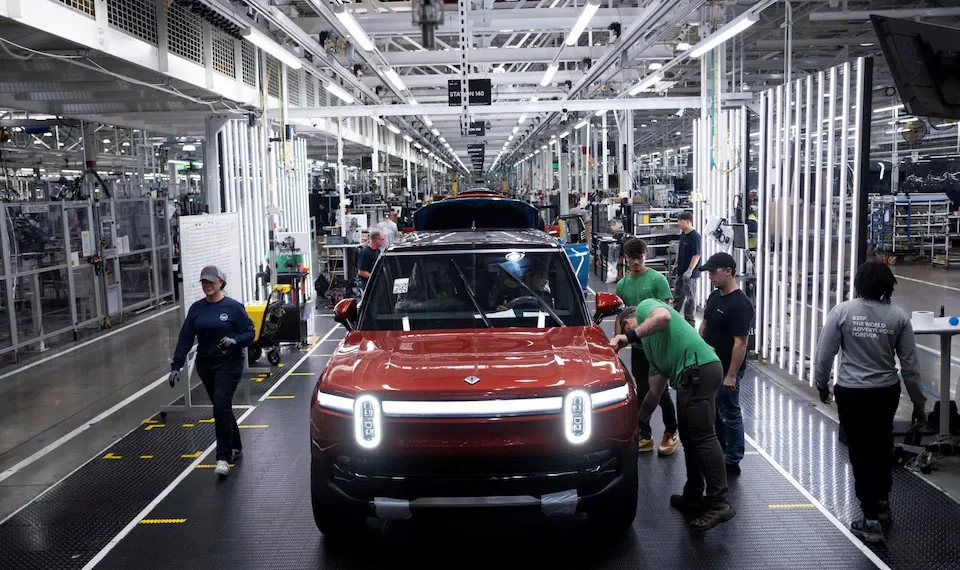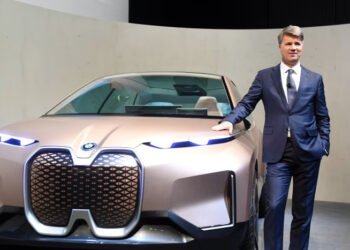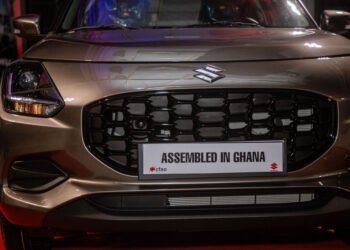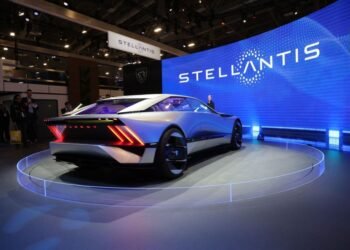German automotive giant Volkswagen (VW) has announced plans to invest up to $5 billion (£3.94 billion) in Rivian, a U.S.-based electric vehicle (EV) maker and competitor to Tesla.
This strategic investment marks a significant step in the evolving landscape of electric mobility, as traditional automakers and startups vie for dominance in the rapidly growing EV market.
The investment forms part of a joint venture that will enable VW and Rivian to share technology, combining their expertise to accelerate the development and deployment of cutting-edge electric vehicles.
The initial phase of the investment involves VW injecting $1 billion into Rivian, with an additional $4 billion slated for investment by 2026. This financial commitment has already yielded positive market reactions, with Rivian’s shares soaring by nearly 50% following the announcement.
Founded in 2009, Rivian has yet to post a quarterly profit, reflecting the challenges faced by many EV startups in establishing a foothold in the highly competitive market. In the first quarter of 2024, Rivian reported a net loss exceeding $1.4 billion. Despite these financial hurdles, Rivian has garnered attention for its innovative electric trucks and SUVs, which are seen as potential game-changers in the EV industry.
Traditional Automakers Are Under Increasing Pressure To Transition
VW’s move comes at a time when traditional automakers are under increasing pressure to transition from fossil fuel-powered vehicles to electric alternatives. The competition has intensified not only from established players like Tesla but also from emerging Chinese EV manufacturers such as BYD. These companies have been rapidly expanding their global presence, challenging Western automakers in their home markets.
The partnership with Rivian provides VW with immediate access to Rivian’s advanced software, a crucial component in modern EVs. This technology integration is expected to enhance VW’s own electric vehicle offerings, allowing the German automaker to compete more effectively in the global market. The collaboration underscores the importance of software in the future of automotive design and functionality, as vehicles become more connected and autonomous.
The announcement of the VW-Rivian deal coincides with growing geopolitical tensions surrounding EV trade. Western nations, particularly the European Union (EU) and the United States, have been moving to impose tariffs on Chinese EV imports.
Earlier this month, the EU announced plans to raise tariffs on Chinese EV imports by up to 38%, following a lengthy investigation by the European Commission that concluded Chinese EV manufacturers had benefited from unfair subsidies. In response, China criticized the tariffs as a form of protectionism, arguing that they violated international trade rules.
The U.S. has also taken a firm stance, announcing an increase in import levies on Chinese EVs from 25% to 100%. This move reflects broader efforts to bolster domestic EV production and reduce reliance on foreign imports. Canada has signaled that it may follow suit, aligning its policies with those of its allies to support its own automotive industry.
Meanwhile, Tesla, one of the primary competitors in the EV market, faces its own challenges. The company recently announced a recall of more than 11,000 Cybertrucks sold in the U.S. due to issues with windscreen wipers and exterior trim. The recall highlights the ongoing quality control challenges that even established EV manufacturers must address as they scale up production.
READ ALSO: Africa Demands Fairness in Global Renewable Energy Shift























